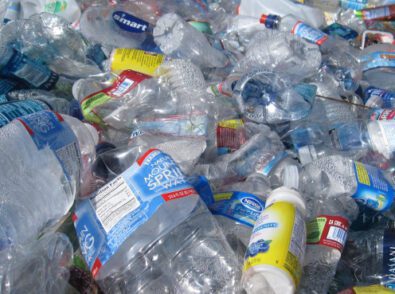Biobased Products and Policies in the US and EU

Biobased products are becoming preferred as the world turns away from all things petroleum-based. As consumers and businesses look for more sustainable alternatives to items usually made from plastic, the United States Department of Agriculture (USDA) has identified biobased products, creating 139 categories of goods except food, fuel, and feed.
The USDA also has a BioPreferred program under the 2002 Farm Bill. This database is a sourcing guide for businesses seeking certified biobased products to use or sell and a mandatory procurement program for all government agencies and their contractors.
But what are biobased products, and how are they regulated in the US and European Union (EU)? Let’s have a look.
What Are Biobased Products?
Biobased products, put simply, are commercial or industrial items made wholly or in part from biological materials like plants and other renewable raw materials from agricultural, forest, or marine sources. Since these are made from renewable materials, biobased products are an alternative to petroleum-derived or nonrecyclable options.
Biobased products are certified as such by the USDA through the BioPreferred program. USDA biobased certification allows consumers and businesses to gain transparency into the products they purchase and use. Buyers can know which products come from renewable sources and make more ecological and socially responsible choices.
Advantages of Biobased Products
Biobased materials offer several advantages over standard products. They:
- Are more eco-friendly: Biobased products do not use as much energy or water or produce as much toxic waste as chemical or petroleum-based products, so they have a smaller environmental impact.
- Are biodegradable: Many biobased products are biodegradable in various disposal environments. They will naturally decompose at the end of their useful life instead of lasting many years in landfills.
- Reduce reliance on petroleum products: The BioPreferred label encourages consumers to buy products from renewable agricultural resources, which should reduce dependence on petroleum-based products. Buyers can support sustainable production methods instead of petroleum.
- Support environmental and human health: With more consumers choosing biobased products over standard materials, adverse effects on the environment and human health are reduced. Some petroleum-based products have ingredients that harm the environment and human health, but biobased products do not have these chemicals.
Examples of Biobased Products
Among the most common biobased products you’ll see on store shelves, you’ll find:
- Detergents and cleaning fluids
- Lubricants
- Oils
- Waxes
- Bioplastics
- Packaging materials
- Inks
- Fertilizers
- Furnace filters
- Household items
- Personal care products
- Cosmetics
- Medical supplies
Since the USDA certification and labeling is voluntary, you won’t always see the designation on the packaging. However, certification and labeling beyond what’s required to qualify are becoming a way for consumers to differentiate and make better-informed choices.
Why Do USDA Biobased Products and Regulations Matter?
Biobased certification is essential for both consumers and manufacturers. We live in a time when greenwashing—when products appear sustainable but are not—is as rampant as the desire to make better choices. Certification provides transparency for both the buyer and producer, so together, we can work toward a renewable future.
USDA biobased certification is important for the buyer’s journey. Certification gives consumers confidence that the products they’re buying are what they promise on the label. Since the BioPreferred label is trustworthy, consumers can be sure the product is made from natural materials and does not support production practices that harm the environment.
Biobased certification is also important for producers because it allows companies to show their commitment to change. Manufacturers that go biobased stand to gain market share and consumer trust because consumers are willing to buy a sustainable product over a standard item when given the choice. Seventy-two percent of buyers say they are buying more eco-friendly products now than they did five years ago, and this trend will only increase as people become more aware of sustainable products and labeling.
As more consumers choose eco-friendly options over fossil fuel-based products, other businesses must improve their goods to meet market demand or risk falling out of favor. Over time, the preference for biobased products can decrease—or completely remove—fossil fuel-based products in the market.
[insert photo of biobased label with both product and packaging %]
About the BioPreferred Program
The USDA’s BioPreferred Program was created to stimulate product innovation and increase the use of biobased raw materials. The program also seeks to create economic benefits, such as new jobs, by encouraging the adoption of biobased products. These objectives are intended to reduce reliance on petroleum and mitigate the environmental and health impacts of its use.
The two primary aspects of the BioPreferred program are the:
- Voluntary labeling initiative: The voluntary labeling protocol provides labeling for biobased products on the market to make it easier for consumers to identify biobased options. Companies can add the BioPreferred label to their products—given they meet specific requirements—to prove their biobased content to consumers.
- Mandatory purchasing requirement: The federal purchasing program mandates biobased product purchasing for government agencies and federal contractors. Federal purchasing is highly specific regarding the percentage of biobased materials that must be included in each category.
The BioPreferred program has helped showcase the benefits of biobased products. The USDA defines 139 categories for biobased products, whereas in 2005, only six categories were defined. The federal purchasing requirement has grown yearly as more federal groups and contractors buy biobased products. Thousands of products have been officially certified under the voluntary labeling initiative, with more added to the database daily.
USA General Regulations for Biobased Products
As biobased products gain ground in our daily purchasing lives, it’s important to note that the US and other countries’ labeling and testing regulations are not the same. The United States has a specific process companies must follow to qualify for the BioPreferred label. This process protects the certification’s integrity so customers can trust that the product contains what the certification promises.
Qualified Product Categories and Materials
Raw materials, products, and packaging can be biobased. They must contain a percentage of natural materials to qualify for the BioPreferred label. For example, a certified biobased product is not always made from 100% biobased materials. The minimum percentage for certification is 25%. Packaging and product can be tested and disclosed on the label separately to tell customers which part of the product is BioPreferred and how much.
The BioPreferred program has identified product categories for the federal purchasing mandate and voluntary labeling initiative. Your product should fall under one of the 139 identified categories. The minimum required biobased content percentage varies for the categories designated for federal purchasing, but categories for the voluntary labeling initiative have a minimum biobased content of 25%. Novel products that do not fit a category can also qualify, but testing must show at least 25% biobased materials per the ASTM D6866 standard.
Third-Party Verification
In addition to proving the product or packaging is biobased, a third party must verify the percentage of natural material. In the United States, biobased products must be independently tested to verify the materials used and the percentage of biobased ingredients in the final product to be labeled with a biobased certification. Biobased products and materials must be tested in an ISO 17025-accredited lab. The USDA strictly oversees the process to ensure claims made on the label are accurate.
Financial Assistance for the Verification Process
The USDA actively advocates for manufacturers and offers support to help companies complete the certification process successfully. Funding may be available at the state level or through the US Rural Development Program.
Biobased Policies for the Future
The Bipartisan Policy Center made many recommendations to modify and improve the BioPreferred program for the 2023 Farm Bill, including:
- Using the standard development activities already present in the private sector to enhance the BioPreferred program.
- Defining, reviewing, and updating the minimum biobased content percentage at regular intervals based on market information and technology developments.
- Developing multi-attribute labeling to be more specific about identifying product benefits, like low carbon and carbon negative.
- Modernizing data and reporting to accurately portray the BioPreferred program’s economic impact.
- Collaborating with other federal agencies to enhance USDA recommendations.
- Providing monetary funds to improve the BioPreferred program’s impact and incentivize and reward high-performing biobased products.
EU Regulations for Biobased Products
The European Union’s regulation on promoting and using biobased products is not legally binding. Some laws aim to achieve specific objectives, such as eliminating single-use plastics and plastic bags, but like in the US, biobased product labeling is voluntary.
Labeling a product as biobased means that it must be certified by an approved body to ensure it meets the EU’s sustainability standards per the Circular Economy Action Plan of 2020. The criteria and policies outlined in the new framework are designed to clarify definitions of compostable, biodegradable, and biobased plastics, what applications they should be used for, their environmental impact, and how they should be disposed of.
To achieve carbon neutrality by 2050, the European Commission’s objective is that a minimum of 20% of carbon in plastic and chemical products must be from sustainable, renewable, non-fossil sources.
Biobased product labeling is a step towards fostering a bio-economy in Europe. It promotes the use of renewable resources, reduces environmental impact, and provides consumers with the necessary information to make conscious purchasing choices. This regulation is another indication of the EU’s commitment to sustainable development and its goal of becoming a leader in the circular economy.
Greenprint Abides With US and EU Biobased Policies
Greenprint Products were developed to foster a sustainable ecosystem in single-use disposables. We are committed to growing toward a circular economy with efficient manufacturing, zero plastic packaging, and sustainable strategies for product disposal.
Whether you are a business owner or a consumer, you make choices each day in what to buy—and, more importantly, what not to buy. USDA biobased certification guarantees that the manufacturer’s labeling claims are verified so you can purchase with confidence.
We’re all doing our bit for the planet each and every day. This is just one more way to do it. Shop Greenprint biobased products today to purchase plant-based disposables for your restaurant.
References
https://www.ers.usda.gov/publications/pub-details/?pubid=42674
https://www.biopreferred.gov/BioPreferred/faces/catalog/Catalog.xhtml
https://www.businessnewsdaily.com/15087-consumers-want-sustainable-products.html
https://www.biopreferred.gov/BioPreferred/faces/pages/AboutBioPreferred.xhtml
https://www.biopreferred.gov/BioPreferred/faces/pages/ProductCategories.xhtml
https://www.astm.org/d6866-22.html
https://www.biopreferred.gov/BioPreferred/faces/pages/TestingPhase.xhtml
https://www.biopreferred.gov/BioPreferred/faces/pages/USDALoansAndGrants.xhtml
https://www.european-bioplastics.org/policy/eu-policy-framework-on-bioplastics/
References
- https://www.ers.usda.gov/publications/pub-details/?pubid=42674
- https://www.biopreferred.gov/BioPreferred/faces/catalog/Catalog.xhtml
- https://www.businessnewsdaily.com/15087-consumers-want-sustainable-products.html
- https://www.biopreferred.gov/BioPreferred/faces/pages/AboutBioPreferred.xhtml
- https://www.biopreferred.gov/BioPreferred/faces/pages/ProductCategories.xhtml
- https://www.astm.org/d6866-22.html
- https://www.biopreferred.gov/BioPreferred/faces/pages/TestingPhase.xhtml
- https://www.biopreferred.gov/BioPreferred/faces/pages/USDALoansAndGrants.xhtml
- https://www.european-bioplastics.org/policy/eu-policy-framework-on-bioplastics/
- https://www.europeansources.info/record/a-new-circular-economy-action-plan-for-a-cleaner-and-more-competitive-europe/
- https://www.european-bioplastics.org/policy/eu-policy-framework-on-bioplastics/comments-on-biobased-plastics/




